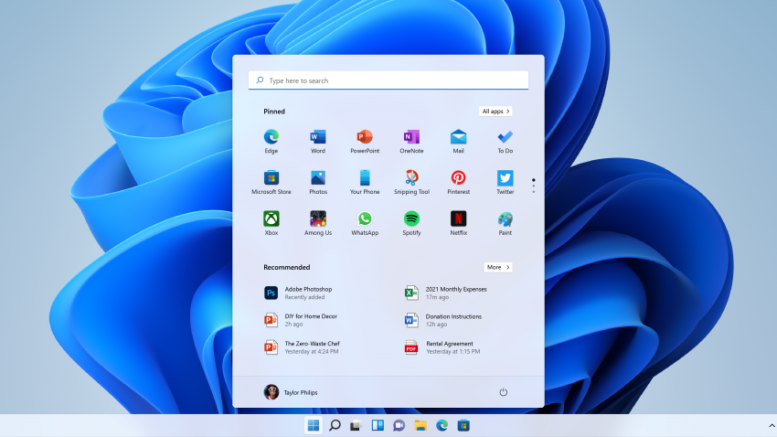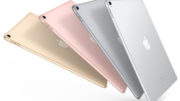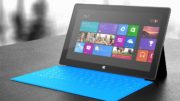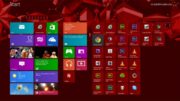There’s a trope that odd-numbered Star Trek movies stink. It’s not completely wrong. I would say there’s a similar feeling about Windows versions. Every other one seems to have real problems. Windows 98 was good, Windows Me was bad. Windows XP was good, Windows Vista was bad. 7 good, 8 bad, 10 good. You get the idea. So should we be worried about Windows 11?
In case you’ve been busy…
Windows 11 was announced this week. It wasn’t exactly a surprise, as Microsoft had been dropping hints for a couple of weeks. Although they had once called Windows 10 “the last version of Windows,” clearly there was a feeling that some changes needed to be made. You’ll have several months to decide if this version of Windows is for you, because it won’t be available unless you sign up for special “Insider” builds. In the meantime, here’s my take on the whole thing.
Who was asking for a visual update?
The media have made a lot of how Windows 11 will move the icons to the center of the taskbar and introduce “lightly rounded corners” to the operating system. To which I say, who cares. It’s already been announced that if you’re highly offended by the center-mounted start button, you can move it back. And I can’t imagine anyone terribly caring that things are a little bit rounded. Yes, it’s more in keeping with modern design themes, but it’s not likely to raise eyebrows.
The visual changes to Windows are actually minor overall. That’s good, because no one was asking for a major change here. They’re just enough that you’ll know you’re not using Windows 10 anymore. I suppose you could say (and many have) that the changes follow the design language established by Apple and Google. They wouldn’t be wrong. But let’s be honest here if you’re going to do an app list at the bottom of the screen there are only going to be so many ways you could do it.
What people might actually care about
First of all I’ve said over and over that what people want out of Windows is to get out of the way and let us do our thing. Pretty much no one just pokes around the user interface to see what’s going on. Windows is synonymous with work and productivity for most people. For others it’s about high-end gaming. Either way, it’s not the menu system that draws you in.
However, Windows 11 does look to introduce two new idioms that could be good or bad depending on how they end up working. Both have the capability of making this version of the operating system a major mistake.
A less-powerful Start menu
The Start menu does get a pretty big overhaul here. Instead of a very customizable portal, it seems like it will be a list of apps you can “pin” to the top as well as some predictive logic for what you might actually want to use. This gives it practically no advantage over the taskbar and could trigger a huge backlash.
On the other hand, the new Start menu does get rid of Live Tiles, which are pretty much the first things I delete when I start with a new Windows install. So that’s an improvement. But without the ability to really dive into customizing the Start menu, it loses a lot of appeal. Microsoft calls it “streamlined.” I call it “hobbled.”
The last time the company messed with the Start menu, the backlash was swift and universal. Windows 8, with its full-screen start experience, was a massive mistake for a company that had made many mistakes in the decade prior. Windows 10 fully restored the Start menu experience and it was one of the cornerstones of the company’s success in the ’10s. Which way do you think things will go this time?
Cleaning up the back end menus
In order to keep compatibility with older apps, A lot of Windows 10 used menus and systems that hadn’t changed significantly since Windows XP in 2001. Today, you’ll find that if you want to do more than just make gentle changes to your experience, you’re launched into systems that seem creaky and hard to navigate.
The problem is that those old systems work. Windows 11 will attempt to finally retire things like the old Windows Control Panel and the Microsoft Management Console in favor of a unified control experience. This is a good idea, but inevitably it’s going to mean that some of the more advanced options won’t be there. It’s also going to mean that once-compact applets will probably take up the entire screen.
I’m not looking forward to this change, but I do recognize that after 20 years a lot of that stuff needs to be trashed, because it’s holding back the next generation of professionals.
A word about Android apps
The blogosphere is also blowing up with news that Windows will run Android apps without any emulator or external software. Few people realize that it’s been possible to run Android apps on Windows for years but you do need some extra software. This will change with Windows 11.
This is going to be great for people who want to use obscure Android apps that never got ported to Windows. Or will it? So far it looks like the only way to get those apps is through the Amazon Appstore. While this will ensure that the apps are screened for malware, it also will limit the selection. Microsoft would have been better off making a deal with Google to use their Play Store, but that just may not have been possible. The two companies are natural competitors and it just might not have made sense.
I will be looking forward to this feature for some of the apps I use on my phone but can’t get on Windows.
Will Windows 11 turn people away from Chromebooks and tablets?
Arguably Microsoft’s greatest failure in the last 20 years has been that they just couldn’t get mobile devices right. They let Apple and Google take over the mobile space. Now, mobile devices have 80% of internet traffic and traditional PCs are an also-ran. It’s not from Microsoft’s lack of trying, but they’ve always had problems.
The company has eventually gotten to the point where they produce a fairly good mobile device in their Surface line. It’s not surprising that they’re building Windows 11 to capitalize on the kind of experience Surface users want. But, the real question is whether or not they’ll sacrifice the traditional desktop experience in order to give mobile users more options. That’s what they did with Windows 8 and it nearly wrecked them.
I still don’t buy the idea that Microsoft can become a viable “third option” after Apple and Google. Those companies are the future and Microsoft just isn’t. This is an attempt to get into that space, to reclaim some of the lost ground from the last year when a generation of students relied on their iPads and Chromebooks. I don’t think it will work out that way.
My final analysis
Look folks, I’ve been burned a lot by making pronouncements on the internet that end up making me look foolish. So I won’t go too far out on a limb here. I will say that I don’t think Windows 11 will do what Microsoft wants. We won’t all suddenly drop our iPhones and Androids and move to Windows tablets.
I think in the end, Windows 11 is a pretty mild upgrade, especially when you realize it will be almost 7 years since there’s been any real visual upgrade to Windows. Some folks will complain, but most people will adapt and move on.
No, I don’t think Windows 11 is the gamechanger Microsoft is hoping it will be. But for regular users, that’s probably pretty good news.





